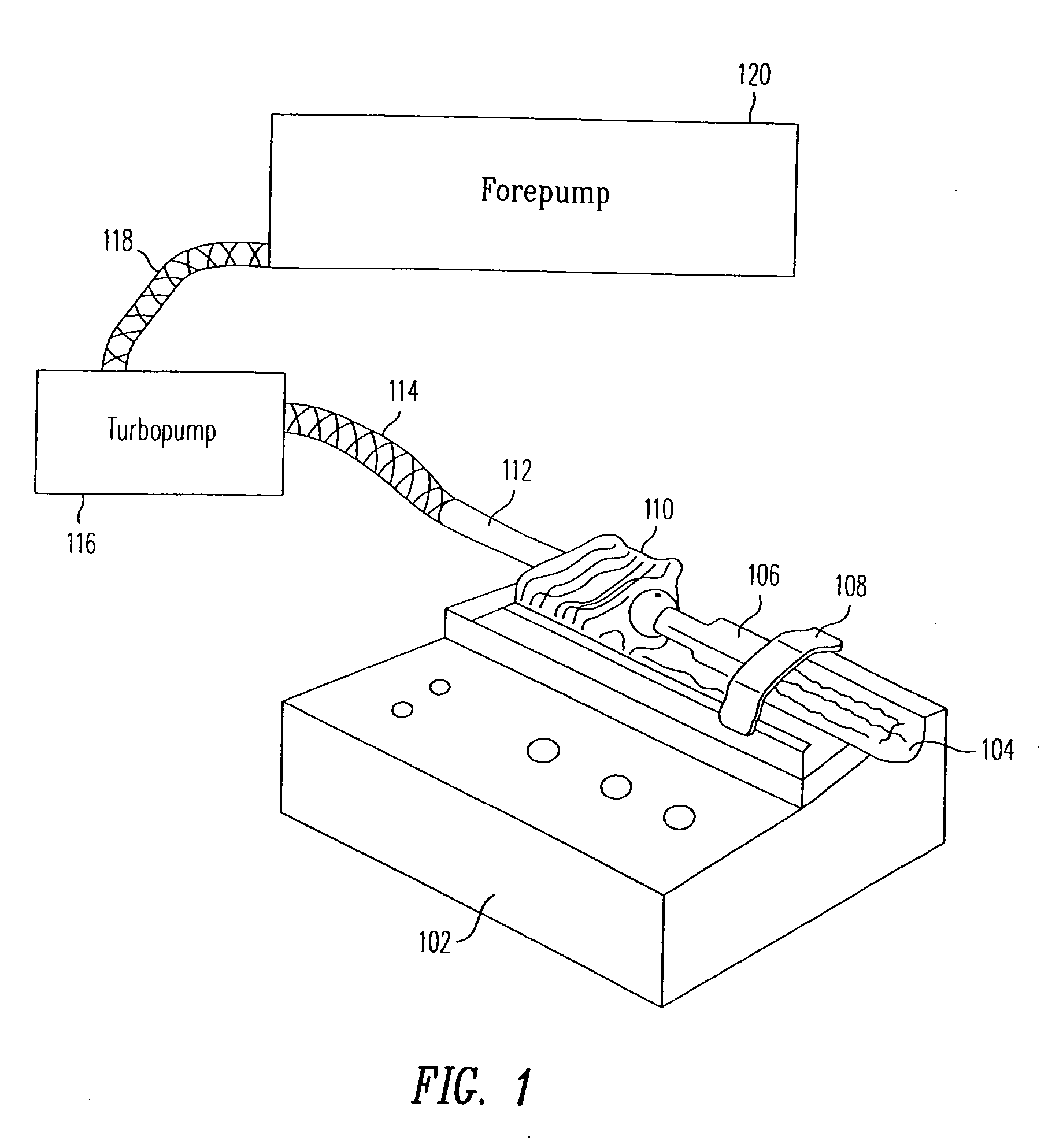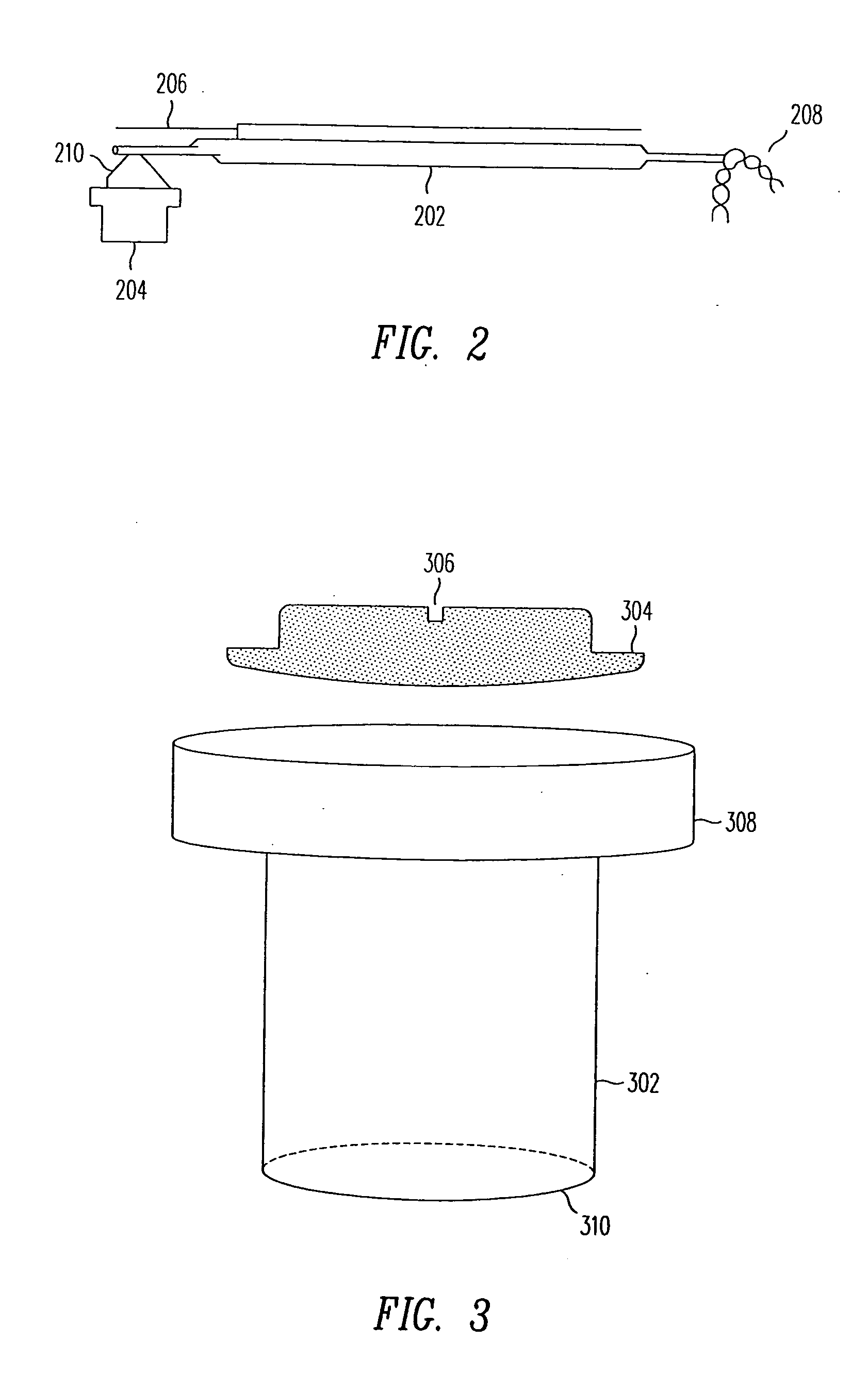Standards for the calibration of a vacuum thermogravimetric analyzer for determination of vapor pressures of compounds
a technology of vacuum thermogravimetric analyzer and calibration standard, which is applied in the direction of material thermal analysis, magnetic materials, electrical/magnetic means, etc., can solve the problems of inefficient heat transfer, increased risk of pinhole formation of head and disk, and high cost of additional chemical remedies, so as to improve the magnetic properties of slugs
- Summary
- Abstract
- Description
- Claims
- Application Information
AI Technical Summary
Benefits of technology
Problems solved by technology
Method used
Image
Examples
Embodiment Construction
[0024] One embodiment of the present invention provides a novel set of standards for calibration of a VTGA through measuring temperature at the exact location of the sample within the instrument at the sample holder.
[0025]FIGS. 1 and 2 are schematic diagrams showing the components of the VTGA in relation to the location of a sample in the sample holder. As illustrated in FIG. 1, the VTGA comprises: a electronic control unit, 102; a glass enclosure, 104, which envelopes a sample balance arm, 106, that is inserted into a balance assembly, 108; a furnace, 110; a large conductance evacuation tube, 112; a vacuum hose connecting the evacuation tube, 114, with a turbo pump, 116; a vacuum hose connecting the turbo pump, 118, with a forepump or backing pump, 120. The features differentiating the VTGA from a TGA are modifications to the TGA that permit measurements in vacuum, in particular, the attached vacuum components, 112 through 120, that allow the operator to evacuate the glass enclosu...
PUM
| Property | Measurement | Unit |
|---|---|---|
| Fraction | aaaaa | aaaaa |
| Fraction | aaaaa | aaaaa |
| Fraction | aaaaa | aaaaa |
Abstract
Description
Claims
Application Information
 Login to View More
Login to View More - R&D
- Intellectual Property
- Life Sciences
- Materials
- Tech Scout
- Unparalleled Data Quality
- Higher Quality Content
- 60% Fewer Hallucinations
Browse by: Latest US Patents, China's latest patents, Technical Efficacy Thesaurus, Application Domain, Technology Topic, Popular Technical Reports.
© 2025 PatSnap. All rights reserved.Legal|Privacy policy|Modern Slavery Act Transparency Statement|Sitemap|About US| Contact US: help@patsnap.com



